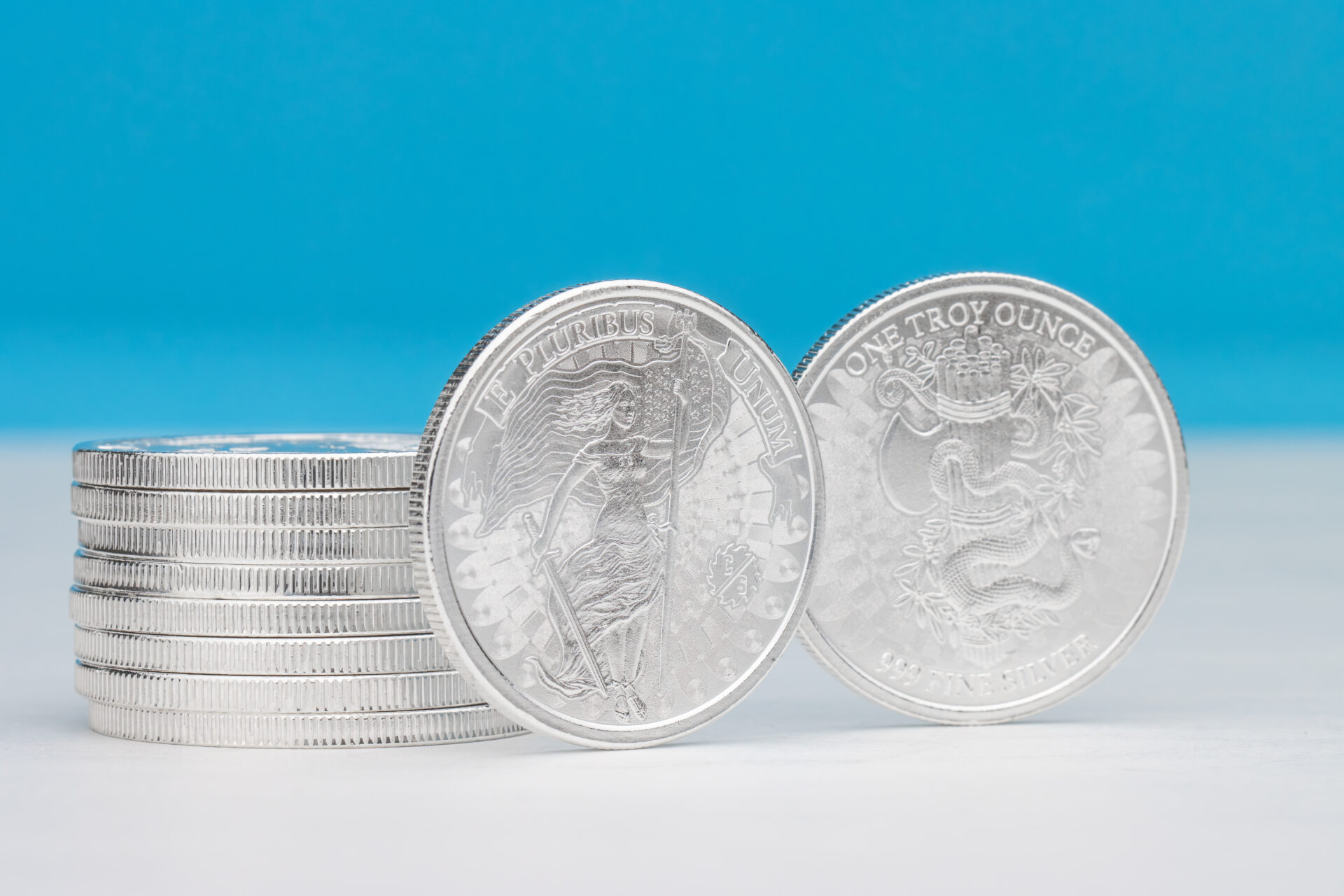Generic vs Sovereign Silver Rounds – What’s the Difference?

Understanding Generic vs. Sovereign Rounds
The world of precious metals offers a plethora of options. Among these, you’ll frequently encounter “generic rounds” and “sovereign rounds”. Understanding these terms is pivotal in making an informed decision about your bullion acquisition. This piece explores the key differences between generic vs. sovereign rounds, their advantages, and factors worth considering.
Before we delve deeper into the topic of generic vs sovereign rounds, it might be beneficial to acquaint yourself with the various gold coins, gold bars, and silver coins we offer.
Definitions and Origins
Generic Rounds
Also known as privately minted rounds, these bullion products are crafted by private mints or refineries. They primarily attract attention due to their metal content, not having any official government-backed currency value.
Sovereign Rounds
In contrast, sovereign rounds are official bullion coins minted by governments. They carry legal tender status and are recognized as official currency in their countries of origin. Examples of these can be seen in our in-stock gold and in-stock silver coins sections.
What’s the Difference Between Generic Silver and Premium Silver?
The precious metals market often differentiates between “generic silver” and “premium silver”. The former typically refers to privately minted rounds, bars, or ingots, valued mainly for their silver content. They provide an affordable route to acquire silver.
On the other hand, premium silver usually points to coins or rounds produced by sovereign mints. These pieces boast high quality and feature prominent designs associated with the issuing country. Factors like rarity, demand, and condition also contribute to their value. Thus, premium silver often sells at a higher price than the spot value of its contained silver.
What is Considered a Generic Silver Round?
A generic silver round is a silver bullion piece produced by a private mint or refinery, as opposed to a government mint. They’re typically simple in design, without a face value. They often come at lower premiums over the spot price of silver, making them a popular choice for those focusing on the metal’s intrinsic value.
Is Generic Silver Real Silver?
Absolutely! The term “generic” doesn’t hint at inferior quality but rather refers to the fact that these rounds are manufactured by private entities instead of government mints. Generic silver rounds usually contain .999 fine silver, translating to 99.9% pure silver.
What Type of Silver is Best Quality?
The highest quality of silver is often referred to as .9999 fine silver, meaning it’s 99.99% pure. It’s found in investment-grade silver bullion from some of the world’s most prestigious mints. Both sovereign and generic rounds can have this purity level, but it’s more common in certain sovereign coins. However, the “best” silver is subjective and depends on the investor or collector’s priorities – purity, design, mint credibility, among others.
Designs and Appearances
Generic Rounds
Private mints have a reputation for unique, creative designs featuring historical figures, animals, landmarks, or abstract themes. This diversity gives investors a broad selection.
Sovereign Rounds
Sovereign rounds, being official government-issued coins, typically feature iconic national symbols, historical figures, or emblems representing their issuing country.
Comparison of Generic vs Sovereign Rounds
Here is a comparison table to illustrate the key differences:
| Features | Generic Rounds | Sovereign Rounds |
|---|---|---|
| Origin | Private mints | Sovereign governments |
| Value | Primarily for their metal content | Legal tender in the country of origin |
| Design | Unique and varied | National symbols, historical figures, emblems |
| Purity and Weight | Mostly .999 or higher purity, varied weights | Strict quality standards set by governments, different weights available |
| Premiums | Lower premiums, more affordable | Higher premiums due to government backing, recognized legal tender status, and increased market liquidity |
In essence, generic rounds offer varied designs, lower premiums, and flexible weight options. Sovereign rounds, meanwhile, provide the security of government backing, legal tender status, and potential for collectible value. Your choice between the two depends on your individual goals, preferences, and budget. Understanding these aspects will help steer your specific investment strategies.
Disclaimer: The content on this site is provided for informational and educational purposes only and should not be construed as professional financial advice. Always consult with a licensed financial or tax advisor before making any decisions based on the information you read on this blog.
